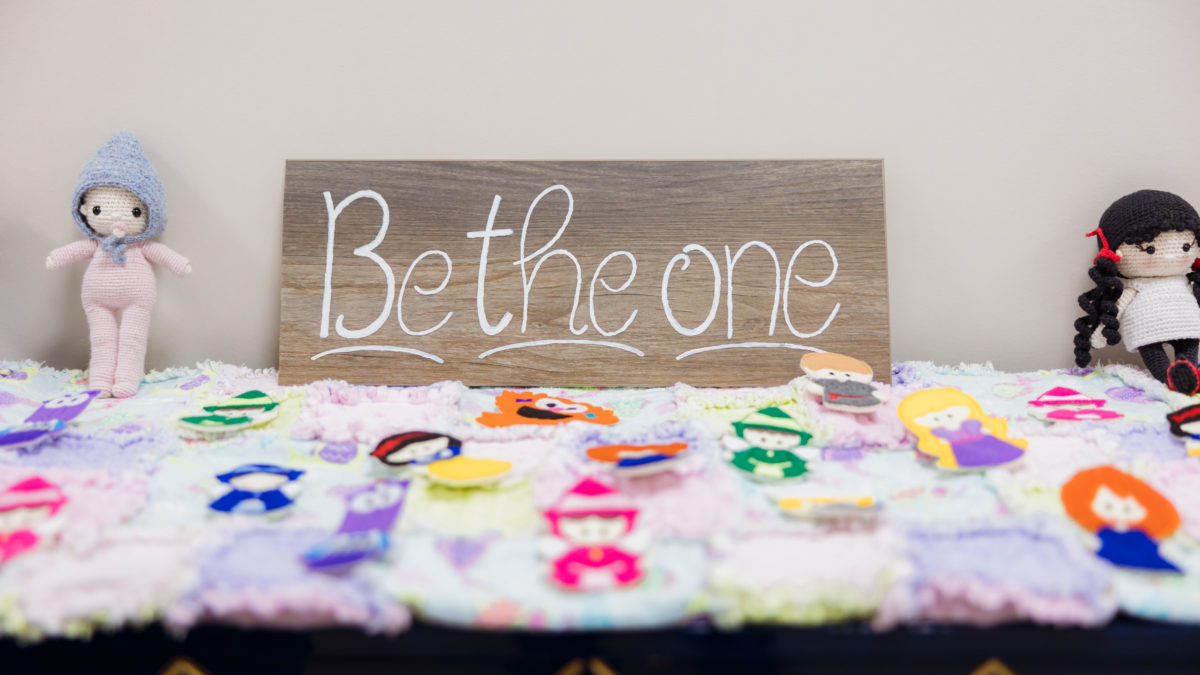Building Responsive Communities

Building a responsive community means building a strong foundation that prevents deeper issues from taking root. At One Place, we strive to accomplish this through preventative programs so the children and families who call Onslow County home have the opportunity to thrive and succeed.
What’s a Responsive Community?
A Responsive Community is any group living in the same area or sharing a particular characteristic in common and reacting quickly and positively to address issues—such as childhood trauma, adverse childhood experiences, and child abuse.
The term highlights the concept that a strong, connected community is able to quickly and positively address issues. When a community is responsive, it becomes possible to get “upstream” from common challenges of stress or trauma impacting community members—especially children.
It is important to remember that a community can certainly be related to “where” you live, but it can also be defined by other characteristics. For example, you could belong to a community of faith with those who worship how or where you do, or you could belong to a community based on being in the same club, classroom, or working in the same place.
Why is building a Responsive Community important?
Strong, responsive communities have a waterfall effect on many different community outcomes—particularly on the futures of young children. When a community is strong, connected, and responsive, positive benefits include higher educational achievement, economic productivity, responsible citizenship, and lifelong health.
For the children of Onslow County, living in a responsive community plays a critical role in ensuring that our community’s children are healthy, safe, nurtured, and ready to succeed. According to the North Carolina Early Childhood Action Plan, there are 10 different aspects of achieving a strong foundation for the children of North Carolina:
- Healthy babies
- Preventative health services
- Food security
- Safe and secure housing
- Safe and nurturing relationships
- Permanent families with children in foster care
- Social-emotional health and resilience
- High-quality early learning
- On track for school success
- Reading at grade level
What prevents Responsive Communities?
Two of the most common barriers to becoming a responsive community are Adverse Childhood Experiences (ACEs) and Toxic Stress.
For some children, experiencing traumatic events during the formative years of childhood can have a profound impact on their life. Adverse childhood experiences (ACEs) can cause a long-term impact on a child’s brain development, social-emotional skills, and ability to thrive as an adult. ACEs can include a range of experiences, including physical and emotional abuse, neglect, caregiver mental illness, exposure to household or community violence, death in the family, and more.
In many instances, ACEs can manifest as toxic stress in children—and functioning at this level of stress response can impair child brain development, particularly during the formative first 2,000 days of childhood.
ACEs do not impact all children and demographics equally. Nationally, 61 percent of Black non-Hispanic children and 51 percent of Hispanic children have experienced at least one ACE compared with 40 percent of White non-Hispanic children. Income also plays a role: Studies have suggested that low socioeconomic status paired with social isolation are both major risk factors for ACEs.
In North Carolina, 23.3 percent of children have one ACE and 23.6 percent have experienced two or more adverse childhood experiences.
How you can help build a responsive community
Although there are systemic changes that need to happen in order to ensure a stable and responsive community, you can still make an impact on the lives of children and families in your community.
- Show up for the children in your life.
It only takes one consistent, safe, and stable adult to positively impact the life of a child. Be that one! Your relationships, interactions, and connections matter—every single day.
- Lead with empathy.
When interacting with children or families in your community, lead with empathy, respect, and encouragement. Instead of asking, “What’s wrong with you,” you can ask, “What happened?” If you’re uncertain about what empathy can look like, check out this video from Brené Brown.
- Build the 5 Protective Factors.
The 5 Protective Factors is a framework developed by the Center for the Study of Social Policy as a measure of prevention for children, families, and communities at large. When these 5 Protective Factors are part of the community, families have a much better chance for positive outcomes.
- Social and Emotional Competence
- Knowledge of Parenting and Child Development
- Social Connections
- Concrete Support
- Resilience
We’re here to help.
Responsive, resilient communities are built through resilient leaders. To deepen our impact in Onslow County, One Place is launching our newest program: Foundations for Resilience.
We will offer customized personal and professional growth opportunities and skill building for nonprofit and for-profit organizations on topics of personal growth, team building, trauma and resilience, personality styles and communication, and challenging relationships.
Stay tuned to our social media channels for our official launch in October. For more information on Creating Responsive Communities or Foundations for Resilience, contact Joe Coffey, Director of Community Engagement at joe.coffey@oneplaceonslow.org or via telephone at 910-333-0610.
